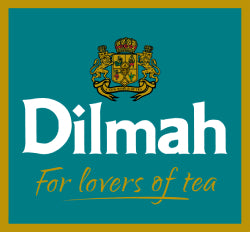
White Tea Vs Oolong Tea
Tea is a time-honoured beverage which has gained immense popularity worldwide due to its numerous health benefits and delightful flavours. Among the vast variety of teas available, white tea and oolong tea stand out for their unique characteristics and potential health advantages.
Let’s explore the differences between white tea and oolong tea, examining their health benefits and how they can contribute to your overall well-being including weight loss.
What is White Tea?
White tea, derived from the Camellia sinensis plant, is one of the least processed tea types. It is made from young tea leaves and buds which are carefully plucked and dried. Unlike green or black tea, white tea undergoes minimal oxidation, preserving its delicate flavour and nutritional properties.
Antioxidant Powerhouse
White tea is rich in antioxidants, such as catechins and polyphenols, which neutralize harmful free radicals in the body. These antioxidants help combat oxidative stress and reduce the risk of chronic diseases, including heart disease and certain cancers.
Promotes Healthy Skin
Antioxidants and anti-inflammatory components such as epigallocatechin-3-gallate (EGCG), which is present in white tea, are known to contribute towards a healthy and radiant skin. Hence, regular consumption of white tea may help reduce the signs of ageing and protect the skin from damage caused by UV rays and pollution.
Supports Immune System
Essential vitamins, such as vitamin C, and minerals, such as Zinc, which are present in white tea can help to fortify the immune system. Frequent consumption may therefore help the body to ward off infections and illnesses, making it an excellent choice to include in your daily beverage routine.
Aids in Weight Loss
White tea has gained attention for its potential to aid in weight loss. Studies suggest that the combination of caffeine and EGCG in white tea can boost metabolism and enhance fat-burning processes.
What is Oolong Tea?
Oolong tea, also made from the Camellia sinensis plant, undergoes partial oxidation. This processing method gives oolong tea a unique taste that falls between the grassy notes of green tea and the boldness of black tea.
Benefits of Oolong Tea
Boosts Metabolism
Oolong tea's semi-oxidized nature provides a metabolism-boosting effect. Regular consumption of oolong tea may help burn more calories, making it a potential aid for weight management.
Manages Blood Sugar Levels
Research suggests that oolong tea may assist in stabilizing blood sugar levels. This could be beneficial for individuals with diabetes or those at risk of developing the condition.
Enhances Mental Alertness
Oolong tea contains caffeine which, when consumed in moderation, can improve mental alertness and focus. It can be an excellent alternative to coffee for those looking for a milder pick-me-up.
Strengthens Bones
Rich in minerals like calcium and magnesium, oolong tea contributes to maintaining strong and healthy bones, lowering the risk of osteoporosis.
White Tea vs. Oolong Tea
To understand the nuances of these teas better, let's compare some essential nutritional aspects:
Caffeine Content
White tea generally has a lower caffeine content compared to oolong tea, making it a suitable choice for individuals looking to limit their caffeine intake.
Antioxidant Levels
Both white tea and oolong tea contain antioxidants. However, white tea may have a slight edge due to its minimal processing, which enables it to retain more of its natural antioxidant properties.
Calorie Count
Both teas are low in calories, making them favourable options for those watching their calorie intake.
White Tea vs. Oolong Tea for Weight Loss
With their potential to aid weight loss, let's explore which tea might be more effective:
While both white tea and oolong tea show promise in supporting weight loss, individual responses may vary. It is essential that tea consumption goes hand-in-hand with a balanced diet and active lifestyle for optimal results. Both white tea and oolong tea offer unique health benefits that can complement a healthy lifestyle. Incorporating either or both teas into your routine may lead to improved overall well-being.
The choice between white tea and oolong tea ultimately depends on individual preference, health goals, and caffeine sensitivity. Perhaps it is best to sample both types of tea and determine which one suits you best. Visit our online shop to enjoy some of Sri Lanka’s best teas!




